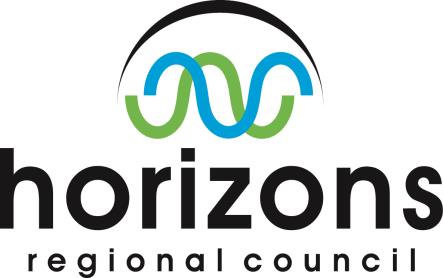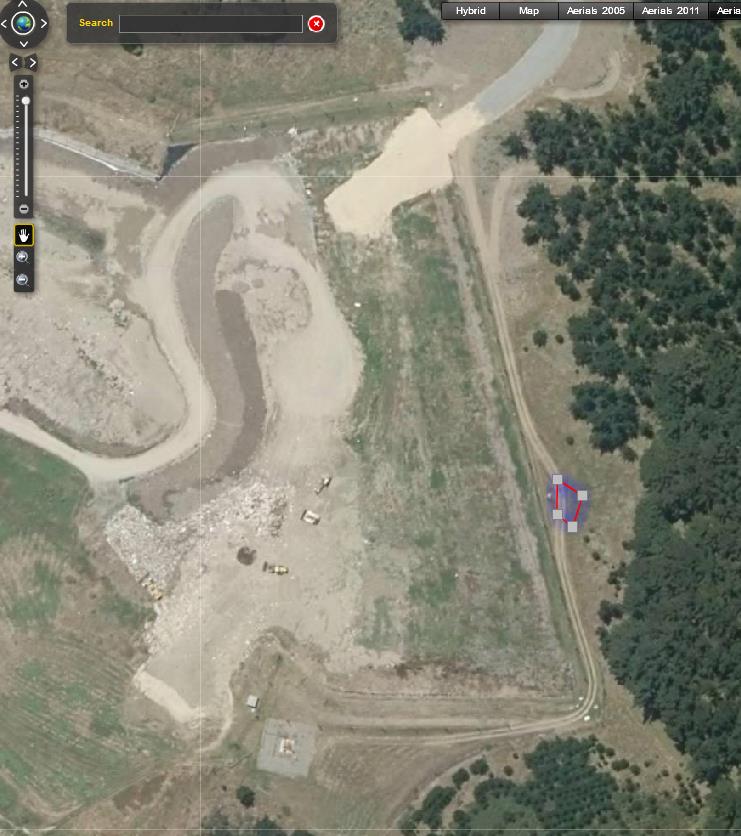


19 June 2017
Horowhenua District Council
Private Bag 4002
File ref: 1/4/HDC
LEVIN 5540
6009, 6010, 6011, 6012, 102259
HSS
Attention Gallo Saidly, Paul Gaydon & Ryan Hughes
Dear Sirs,
LEVIN LANDFILL COMPIANCE INSPECTION – 6 FEBRUARY 2017 TO 1 JUNE 2017
Routine site inspections of the Levin Landfill (landfill) were carried out on
14 February 2017 and 12 May 2017 by Horizons Regional Council (HRC) Consents
Monitoring Officers. These inspections were undertaken to assess the onsite operations
related to landfill cover, leachate and stormwater management and to view recent
improvements made to the leachate and landfill gas (LFG) collection system. This
compliance assessment does not assess the monitoring data contained in the landfill
quarterly or comprehensive reports. A subsequent report will be drafted following a full
review of this information.
The attached report relates to the above site visits, it also draws on a number of proactive
and reactive odour assessments undertaken to verify a number of odour complaints
received by HRC in relation to the landfill. The overall assessment period covered by this
report is 6 February to 1 June 2017. The attached report provides an assessment of the
relevant conditions for this reporting period.
As a result of this assessment the landfill has been given an overall
Comply – Full for
consent 6009,
Comply for consents 6010, 6012 and 102259 and a
Significant Non –
Compliance for consent 6011.
Please note that since the Levin Landfill is at the time of this invoice not complying with the
conditions of its resource consents, the compliance monitoring charges are 100% of the full
charge as detailed in the attached cost sheet.
Please find attached a copy of Horizons Regional Council’s Compliance Assessment
Guidelines for your reference.
If you have any queries about the attached report, please contact me on Freephone 0508
800 800, or via email [email address].
Kind regards,
Hamish Sutherland
SENIOR CONSENTS MONITORING OFFICER

 COMPLAINCE REPORT
LEVIN LANDFILL
COMPLAINCE REPORT
LEVIN LANDFILL
Resource Consents
6009, 6010, 6011, 6012 & 102259
Reporting Period
6 February to 1 June 2017
19 June 2017
 Prepared By
Prepared By
Hamish Sutherland
SENIOR CONSENTS MONITORING OFFICER
Reviewed By
Pita Kinaston
TEAM LEADER CONSENTS MONITORING
2
 EXECUTIVE SUMMARY
EXECUTIVE SUMMARY
This compliance report assesses compliance against resource consents 6009, 6010, 6011, 6012 and
102259 which are held by Horowhenua District Council (HDC) for the operation of the Levin Landfill
(landfill), situated on Hokio Beach Road. The assessment period covered by this report is from 6
February 2017 to 1 June 2017. During this period Horizons Regional Council (HRC) Consents Monitoring
Officers have undertaken two site inspections on 14 February 2017 and 12 May 2017 respectively.
These inspections were undertaken to assess the onsite operational conditions for the landfill,
specifically conditions related to capping/cover, leachate management, stormwater management and
odour.
In addition to the site inspections outlined above HRC have undertaken a number of proactive and
reactive odour assessments, in response to odour complaints, related to the landfill. These complaints
have primarily been from a complainant, at one address, who shares a mutual boundary with the
landfill.
In determining whether an odour is objectionable (and therefore non-compliant with Condition 3 of
resource consent 6011) HRC consents monitoring officers consider the FIDOL factors, which are
Frequency, Intensity, Duration, Offensiveness and Location. To assess the complaints HRC has had to
establish these factors with respect to the landfill. In doing this HRC has worked with the primary
complainant requesting they keep an odour diary. This odour diary has been used by HRC in
conjunction with its own observations and assessments to determine the
Significant Non – Compliance
status against Condition 3. This approach is consistent with best practice in assessing odour as per the
Ministry for the Environment Guidelines titled,
“Good Practice Guide for Assessing and Monitoring
Odour”, dated 2016.
As a result of the inspections and assessments outlined above the following compliance gradings have
been allocated;
Discharge Permit 6009 – discharge solid waste to land =
Comply – Full.
Discharge Permit 6010 – discharge landfill leachate onto and into land =
Comply
Discharge Permit 6012 – divert stormwater from around the Levin landfill =
Comply
Discharge Permit 102259 – discharge stormwater to land and potentially to groundwater via
ground soakage =
Comply
Discharge Permit 6011 – discharge landfill gas, odour and dust to air =
Significant Non -
Compliance
3
link to page 4 link to page 6 link to page 6 link to page 8 link to page 9 link to page 9 link to page 11 link to page 11 link to page 12 link to page 13 link to page 13 link to page 13 link to page 14 link to page 15 link to page 15 link to page 18 link to page 18 link to page 20 link to page 20 link to page 20 link to page 22 link to page 23
 CONTENTS
EXECUTIVE SUMMARY .................................................................................................. 3
CONTENTS
EXECUTIVE SUMMARY .................................................................................................. 3
SCOPE OF REPORT ....................................................................................................... 5
BACKGROUND ............................................................................................................... 5
MONITORING CARRIED OUT / REQUIRED ................................................................... 7
GENERAL CONDITIONS APPLICABLE TO DISCHARGE PERMIT 6009 – DISCHARGE
SOLID WASTE TO LAND ................................................................................................ 8
GENERAL CONDITIONS APPLICABLE TO DISCHARGE PERMIT 6010 – DISCHARGE
LANDFILL LEACHATE ONTO AND INTO LAND .......................................................... 10
Figure 1 – Approximate location of leachate breakout on 12 May 2017. ......................... 11
GENERAL CONDITIONS APPLICABLE TO DISCHARGE PERMIT 6011 – DISCHARGE
LANDFILL GAS, ODOUR AND DUST TO AIR .............................................................. 12
Table 1: Description of the FIDOL factors. ...................................................................... 12
Figure 2: Number of complaints by week 6 February – 12 May 2017. ............................ 13
Table 2: Results of odour assessment forms completed by HRC Consents Monitoring
Officers 14 March – 1 June 2017. ................................................................................... 14
GENERAL CONDITIONS APPLICABLE DISCHARGE PERMIT 6012 DIVERT
STORMWATER FROM AROUND THE LEVIN LANDFILL ............................................ 17
GENERAL CONDITIONS APPLICABLE DISCHARGE PERMIT 102259 – DISCHARGE
STORMWATER TO LAND AND POTENTIALLY TO GROUNDWATER VIA GROUND
SOAKAGE ..................................................................................................................... 19
CONCLUSION ................................................................................................................ 21
RECOMMENDATIONS: ................................................................................................. 22
4
 SCOPE OF REPORT
SCOPE OF REPORT This compliance report assesses the Levin Landfill (Landfill) against resource consents 6009, 6010, 6011
and 102259. This report covers an assessment period of 6 February 2017 to 1 June 2017. In completing
this report two site inspections have been undertaken on 14 February 2017 and 12 May 2017. In
conjunction with this HRC has undertaken various assessments to determine compliance with resource
consent 6011 which governs the Landfills discharges of landfill gas, odour and dust to air.
This report does not assess the quarterly or comprehensive monitoring reports required by the above
consents. This information will be reviewed and covered in a subsequent report.
BACKGROUND
The Levin Landfill is located on Hokio Beach Road in the Horowhenua District, 4 kilometres west of
Levin. The landfill site is located in undulating sand country surrounded by pastoral farming land,
3 kilometres from the coast and 6 kilometres from State Highway 1. The site is approximately
72 hectares in area.
The Hokio Stream (the single outlet for Lake Horowhenua) runs in close proximity to the northern
boundary of the landfill site as it flows west to the sea over a distance of approximately 2.5 kilometres.
There are a number of rural residences located to the north-east of the landfill site and the small coastal
settlement of Hokio Beach is located approximately 1.5 kilometres to the north-west. The Ngatokowaru
marae (Ngati Pareraukawa, Ngati Raukawa) is located approximately 500 metres north-east of the
landfill property, while the Kawiu marae (Muaupoko) is on the northern shore of Lake Horowhenua.
The original resource consents were granted to Horowhenua District Council (HDC) in 1998. These
covered the closed landfill and the new lined landfill.
In 2004 the then Parliamentary Commissioner for the Environment (the Commissioner), received
complaints from several members of the local community expressing concern about the management
and associated environmental effects of the Levin Landfill. The commissioner suggested a review was in
order. Between 2004 and 2007 there was a lot of to and fro between HDC and Horizons and the various
consultants that were employed in relation to these concerns.
5

The Commissioner had originally indicated that their formal investigations would be postponed until the
consent review had been completed; however, given delays in progressing the review, in July 2007 the
new Commissioner decided to commence an investigation and prepare a report for the benefit of all
parties in an aim to resolve the matters at hand.
The Commissioner’s report acknowledged that Horizons had made a decision to publicly notify a new
consent review which would supersede previous negotiations between Horizons and HDC.
Notwithstanding the proposed review, the Commissioner considered that there was significant merit in
releasing their findings at that particular time given the concerns of the local community and the
importance of the outcome of the proposed review.
The Parliamentary Commissioner for the Environment report (August 2008) and supporting technical
assessment undertaken by Tonkin and Taylor (dated 25 March 2008) included key recommendations
which were taken into consideration by the Commissioner in forming their final recommendations.
The report provided guidance for the review of the landfill’s resource consents including
recommendations on compliance monitoring by Horizons and the monitoring and operation of the
landfill by HDC, including liaising with the Neighbourhood Liaison Group.
A formal review was initiated which was completed by 2010 and resulted in the current resource
consent conditions under the following resource consents.
Resource
consent Nature of resource consent
number
6010/1
Discharge of landfill leachate onto and into land
6009/1
Discharge of solid waste onto land
6011/1
Discharge of landfill gas, odour and dust to air
7289/1
Discharge of liquid waste onto and into land
102259/1
Discharge of stormwater to land and potentially to groundwater via
soakage
Recently a further review of the relevant resource consent conditions was completed; however, this is
subject to an appeal therefore the current resource consent conditions apply.
6
 MONITORING CARRIED OUT / REQUIRED
MONITORING CARRIED OUT / REQUIRED
The assessment period covered by this report is 6 February 2017 to 1 June 2017. During this assessment
period two site inspections have been undertaken by HRC to determine compliance with the on site
operational conditions of resource consents 6009, 6010, 6011 and 102259. These inspections were
undertaken on 14 February 2017 and 12 May 2017. In particular these inspections were to assess the
on site management of conditions related to capping/cover, leachate management, stormwater
management, litter and odour.
Over the above assessment period HRC Consents Monitoring Officers have undertaken a series of
reactive and proactive odour assessments. These assessments have been undertaken on a property
that shares a mutual boundary with the Landfill. Eight completed assessment forms are available and
have been used to determine the presence of odour beyond the consented Landfill boundary and the
intensity and nature of that odour with respect to location.
In conjunction with the odour assessments outlined above HRC has provided the residents who reside at
the property adjoining the Landfill an odour diary. This report has used this odour diary to determine
the frequency and regularity of odours leaving the consented Landfill boundary and covers a period of
6 February 2017 to 12 May 2017.
7
 GENERAL CONDITIONS APPLICABLE TO DISCHARGE PERMIT 6009 –
DISCHARGE SOLID WASTE TO LAND
GENERAL CONDITIONS APPLICABLE TO DISCHARGE PERMIT 6009 –
DISCHARGE SOLID WASTE TO LAND
1.
This permit does not authorise the disposal of liquid waste to land at the Levin Landfill.
Liquid waste is defined as:
Septic tank waste, grease trap waste, sewage and any material that contains free liquids.
The presence of free liquids may be determined by either of the following methods, whichever is
most practicable at the time:
i.
The “Paint Filter Test”; or
ii.
Material which may be loaded, transported and deposited at the landfill without the risk
of free liquid seeping from the material, and without the risk of having the deposited
material flow under gravity down any slope on the landfill shall be deemed to not
contain free liquids.
During the 14 February 2017 site inspection several separate loads were brought to the landfill and were
inspected. All of these loads were deemed to not contain free liquids as per condition (1)(ii). At the
time of this inspection the landfill operation was complying with this condition.
Comply-Full.
2.
The Permit Holder shall take all practicable measures to avoid the discharge of waste from
within the landfill to surrounding land. To this end, the Permit Holder shall ensure:
a.
The amount of refuse exposed at any one time is confined in dimension to 800 square
metres of tipping face; and
At the time of my inspections the active tipping face was around 35 meters by 20 meters which is less
than the consented area above.
Comply-Full.
b.
Exposed refuse is covered at the end of each day that refuse is received at the landfill.
The timing of the inspections were in the middle of the day therefore I was unable to verify this
condition. Please ensure daily cover is applied in accordance with this condition. It is noted that the
Landfill Management Plan states primary cover of waste should be provided daily except where no
significant adverse impact would occur without the cover. For clarification it is expected that the
consent holder will adhere to Condition 3b.
Not Assessed.
8
 3.
If refuse is discharged from within the active landfill areas to land outside the legal boundary of
the landfill property, the Permit Holder shall ensure that such waste is cleared and removed to
the landfill as soon as practicable.
3.
If refuse is discharged from within the active landfill areas to land outside the legal boundary of
the landfill property, the Permit Holder shall ensure that such waste is cleared and removed to
the landfill as soon as practicable.
The Levin Landfill has litter fences on the periphery of the landfill cells to help control any airborne
refuse leaving the site. During both inspections the litter fences were clean; in addition to this I did not
see any rubbish beyond the litter fences.
Comply – Full.
4.
The Permit Holder will monitor the landfill at least once every two weeks for the build up of litter,
paper and other deposits outside the active landfilling areas, and remove such material as
required.
As discussed above, the landfill has litter fences to intercept any rubbish blown from the active
landfilling areas. This material is collected regularly by onsite staff and returned to the active landfilling
areas. During my inspections I noticed the litter fences were clear with full collection bags spaced along
the litter fence line indicating the litter fences were regularly cleared.
Comply – Full.
5.
The Permit Holder shall regularly inspect for the presence of vermin, birds and other pests take
appropriate measures to control them.
The onsite staff utilise a gas-powered bird scarer with an occasional shooting to manage birds and cats.
Rat stations are also installed around the litter fences. During both inspections birds were seen on the
operational Landfill cells. The gas powered bird scarer was seen but not heard during both inspections
therefore it is not clear whether it is in operation. The Landfill Management Plan is silent with regard to
recording the instances of any inspections for the presence or vermin, birds and other pests. It is
recommended the consent holder record and report on any inspections and any action taken, to achieve
full compliance with this condition.
Comply – At Risk.
6.
The Permit Holder shall regularly inspect the landfill for noxious weeds, and take appropriate
measures to control those noxious weeds.
At the time of my inspection there were no obvious populations of noxious or invasive weeds such as
gorse, broom or ragwort. The consent holder has provided an invoice showing a helicopter was used to
spray gorse on 27 February 2017. The Landfill Management Plan is silent with regard to recording the
instances of inspections for noxious weeds and the measures used to control them. It is recommended
the consent holder amend the Landfill Management Plan to reflect this.
Comply – Full.
9
 GENERAL CONDITIONS APPLICABLE TO DISCHARGE PERMIT 6010 –
DISCHARGE LANDFILL LEACHATE ONTO AND INTO LAND
GENERAL CONDITIONS APPLICABLE TO DISCHARGE PERMIT 6010 –
DISCHARGE LANDFILL LEACHATE ONTO AND INTO LAND
1.
Charges, set in accordance with section 36(1)c of the Resource Management Act 1991, and
section 690 A of the Local Government Act 1974, shall be paid to the Regional Council for the
carrying out of its functions in relation to the administration, monitoring and supervision of this
resource consent and for the carrying out of its functions under section 35 (duty to gather
information, monitor, and keep records) of the Act.
Note: Section 36(1)c of the Act provides that Council may from time to time fix charges payable
by holders of resource consents. The procedure for setting administrative charges is governed by
section 36(2) of the Act and is currently carried out as part of the formulation of the Council’s
Annual Plan.
Not Assessed.
2.
Landfill leachate shall not contaminate adjoining land.
At the time of the inspections the leachate collection area at the toe of stage 3, the new bio-filter, the
leachate ponds and the periphery of stage 2 were inspected. During the inspection on 12 May 2017 it
was raining. The the stormwater drains along the internal haul roads and the outside of the litter nets
were inspected. A leachate breakout was noted halfway along the eastern edge of stage 2. This was
raised with HDC who took immediate measures to repair the capping and drain the leachate back into
the landfill. Although leachate had escaped from the lined area of the landfill I could find no evidence
that leachate had escaped onto adjoining land or the stormwater system. For the purpose of assessing
this condition adjoining land is considered to be adjoining properties outside the legal boundary of the
Landfill.
The consent holder shall ensure landfill cover is regularly inspected to prevent leachate breakouts. It is
noted that the Landfill Leachate Management Plan requires onsite staff to advise the Solid Waste
Engineer of any required maintenance of problems with the leachate system and any maintenance
preformed shall be recorded on a Daily Inspection Sheet provided under Appendix C of the Landfill
Leachate Management Plan. To provide assurance and achieve full compliance with this condition it
is recommended that completed Daily Inspection Sheets are provided to HRC for review.
Comply – At Risk.
10

 Figure 1 –
Figure 1 – Approximate location of leachate breakout on 12 May 2017.
11
 GENERAL CONDITIONS APPLICABLE TO DISCHARGE PERMIT 6011 –
DISCHARGE LANDFILL GAS, ODOUR AND DUST TO AIR
GENERAL CONDITIONS APPLICABLE TO DISCHARGE PERMIT 6011 –
DISCHARGE LANDFILL GAS, ODOUR AND DUST TO AIR
2.
The Permit Holder will ensure dust is controlled on access roads and on the landfill, if necessary,
by watering or other methods.
The access road up to the site office within the landfill is sealed. The main access roads within the
landfill are metaled. During my site visits there had been recent rain which prevented dust generation.
HRC have not received any complaints in relation to dust from the landfill access roads. Please ensure
access to a water truck is available in the event dust becomes an issue onsite.
Comply – Full.
3.
There shall be no discharge of odour or dust from the landfill that in the opinion of a Regional
Council Enforcement Officer is noxious, dangerous, offensive, or objectionable beyond the
property boundary. The Permit Holder will also ensure that:
When deciding whether an odour is offensive or objectionable HRC enforcement officers must consider
the frequency, intensity, duration, offensiveness/character and location of an odour event. These
parameters are known as the FIDOL factors and are described in
Table 1 below. Odour is monitored by
officers using odour complaint & assessment forms. In completing these forms the officer uses an
interval method, noting the odour intensity every 10 seconds for 10 minutes. The officer will indicate
the hedonic tone of the odour and note the type of land use affected by the odour. This information is
recorded on the assessment form along with weather information. To determine the frequency and
duration of odour events an officer may request that an odour diary is kept by affected complainants.
This approach is consistent with best practice in assessing odour as per the Ministry for the Environment
Guidelines titled, “
Good Practice Guide for Assessing and Monitoring Odour”, dated 2016.
Frequency
How often an individual is exposed to the odour.
Intensity
The strength of the odour. Measured on a scale of 0 to 6.
Duration
The length of exposure.
Offensiveness/character
The character relates to the ‘hedonic tone’ of the odour, which may be
pleasant, neutral or unpleasant. On a scale of -4 (Extremely unpleasant) to
4 (Extremely pleasant).
Location
The type of land use and nature of human activities in the vicinity of an
odour source.
Table 1: Description of the FIDOL factors.
12

HRC has received a number of complaints in relation to odour from the Levin Landfill. These complaints
have primarily been from a complainant, at one address, who shares a mutual boundary with the
landfill. To assess compliance with this condition HRC has worked with the primary complainant
requesting they keep an odour diary. A review of this odour diary shows 81 entries between
6 February 2017 and 12 May 2017 this is summarised below in
Figure 2.
Number of Complaints by week 6 Feb to 12 May 2017.
16
C 14
o 12
m
10
p
l
8
Number of Complaints
a
6
i
4
Linear (Number of
n
2
Complaints)
t
0
s
b
b
b
r
r
r
r
r
r
r
r
Fe-
Fe-
Fe-
Ma
Ma
Ap
Ap
Ap
Ap
Ap
-
Mar-
Ma-
-
-
-
2-
9-
May
12
19
26
5-
12
19
26
16
23
30
7-
Week Ending
Figure 2: Number of complaints by week 6 February – 12 May 2017.
In conjunction with this HRC consents monitoring officers have undertaken proactive and reactive odour
assessments at various times to compare with the odour diary. From these assessments eight
completed assessment forms are available, these are summarised in
Table 2 below. Of these
assessments there were five occasions where odour was detected. Of these five occasions one
assessment concluded that odour was detected; however, the officer did not consider it would be
objectionable at any location for any duration or frequency, two assessments detected odour and
concluded it would not be objectionable unless it became continuous and two assessments detected
odour and concluded it would be objectionable if it occurred on a regular or frequent basis.
13
 Odour detected
Odour detected
Odour detected
and would be
Odour
Odour detected
not
and would be
objectionable if
Nature/Assessment
No Odour.
but not
objectionable
objectionable
Odour detected
Odour detected
Odour detected
and would be
Odour
Odour detected
not
and would be
objectionable if
Nature/Assessment
No Odour.
but not
objectionable
objectionable
Total
occurred
Type.
objectionable.
UNLESS
even in short
regularly or
continuous.
duration.
frequently.
Proactive
2
1
2
0
0
5
Assessment
Reactive
1
0
0
2
0
3
Assessment
Total
3
1
2
2
0
8
Table 2: Results of odour assessment forms completed by HRC Consents Monitoring Officers 14 March
– 1 June 2017.
One of the above assessments, undertaken by an HRC officer on the evening of 28 May 2017 at the
complainants’ residence, noted land fill gas odour at a constant intensity of 1-2 out of 6. This was for
the duration of the assessment, which was 20 minutes. Despite the relative low intensity the officer
considered the odour to be objectionable because of its tone and it’s proximity to the complainants’
residence.
Review of the primary complainants’ odour dairies from 6 February to 12 May 2017 show odour events
occurring on a frequent basis. These events are typically in the 1-3 intensity range; however, there have
been several events in the 5-6 intensity range.
HRC’s own assessments undertaken at the primary complainants’ address have demonstrated the
presence of land fill gas odour that is, at times, objectionable and beyond the consented boundary of
the Levin landfill. Review of the odour diaries kept by the primary complainant, whom HRC believe to
be reasonable people, have demonstrated this odour is occurring on a regular or frequent basis. A
compliance report completed by HRC on 9 February 2015 provided a Significant Non – Compliance
grading for this condition based on odour diaries kept by the primary complainants.
After considering the available information, that includes odour diaries from the primary complainant
and HRC’s own odour assessments, it is my opinion that during this assessment period odour from the
Landfill has been objectionable beyond the property boundary. Accordingly a Significant Non –
Compliance grading has been given for this condition. Also, given this is a repeat Significant Non –
Compliance grading the landfill has been graded as Significantly Non – Complying with resource consent
6011.
Significant Non-Compliance.
14
 3a.
On-site and off-site Health and Safety Effects of landfill gas being emitted by the old landfill
should be quantified by sampling groundwater monitoring wells for evidence of landfill gas when
groundwater samples are taken from the wells. As a minimum, the gases tested for are to
include methane, carbon dioxide and oxygen; and
3a.
On-site and off-site Health and Safety Effects of landfill gas being emitted by the old landfill
should be quantified by sampling groundwater monitoring wells for evidence of landfill gas when
groundwater samples are taken from the wells. As a minimum, the gases tested for are to
include methane, carbon dioxide and oxygen; and
This data will be assessed by a subsequent compliance report covering the quarterly and comprehensive
reports.
Not Assessed.
3b
Any building constructed on the landfill site is adequately ventilated.
Not Assessed.
4.
There shall be no deliberate burning of waste or other material at the landfill. If fires occur at
the landfill they shall be extinguished as quickly as possible.
Inspections of the landfill have shown no evidence that the burning of waste is occurring onsite. There
have been no complaints received by HRC in relation to this.
Comply – Full.
5.
The Permit Holder shall take all practicable steps to avoid, remedy or mitigate significant
adverse effects of the discharge of landfill gases to air.
As previously stated by this report HDC has been through a review for the conditions of the Landfill
resource consents. Accordingly HDC has undertaken various measures to avoid, remedy or mitigate
significant adverse effects of the discharge of landfill gases to air; these measures include:
Construction of a bio-filter at the leachate sump collection area, which is now complete.
Construction of a pipe to take leachate directly to trade waste by-passing the leachate pond,
which is now complete.
A Windsor landfill gas flare is onsite and in the process of being commissioned, this is expected
to be complete in July.
Cover on the batters of stage 2 is being improved with additional clay being added with
additional material being sourced via district roading projects as it becomes available.
As it appears to be silent in this regard it is recommended HDC update their Landfill Management Plan
to incorporate procedures to manage and monitor the landfill gas wells and flare when it is fully
commissioned, to optimise LFG capture and destruction. A means of surveying the Landfill for any
weaknesses/LFG breakouts in the capping layer should also be incorporated.
Comply – On Track.
15
 6.
The Permit Holder shall keep a record of any complaints received. The complaints record shall
include the following, where possible:
a.
Names and addresses of complainant;
b.
Nature of complaint;
c.
Date and time of the complaint and alleged event;
d.
Weather conditions at the time of the event; and
e.
Any action taken in response to the complaint.
The record shall be made available to the Regional Council on request.
6.
The Permit Holder shall keep a record of any complaints received. The complaints record shall
include the following, where possible:
a.
Names and addresses of complainant;
b.
Nature of complaint;
c.
Date and time of the complaint and alleged event;
d.
Weather conditions at the time of the event; and
e.
Any action taken in response to the complaint.
The record shall be made available to the Regional Council on request.
The Permit Holder shall also keep a record of landfill gas monitoring results including:
a.
Date and time of sampling;
b.
The concentrations of gasses detected.
c.
Weather conditions at the time of sampling.
The monitoring results shall be made available to the Regional Council on a quarterly basis.
To determine compliance with this condition HRC requests that all records required by Condition 6(a) to
(e) covering this assessment period (6 February 2017 to 1 June 2017) held by HDC be provided prior to
30 June 2017. All monitoring results required will be assessed in a subsequent compliance report
following a review of the quarterly and comprehensive reports.
Not Assessed.
16
 GENERAL CONDITIONS APPLICABLE DISCHARGE PERMIT 6012 DIVERT
STORMWATER FROM AROUND THE LEVIN LANDFILL
GENERAL CONDITIONS APPLICABLE DISCHARGE PERMIT 6012 DIVERT
STORMWATER FROM AROUND THE LEVIN LANDFILL
2.
Stormwater run-off contaminated by leachate to an extent that it may cause adverse
environmental effects shall be regarded as leachate.
During the 12 May 2017 site inspection a leachate breakout was detected along the stage 2 litter fence.
Leachate had been collected by stormwater as it ran off the clay capping and was contained in a small
area of ponding immediately adjacent to the litter fence. Fortunately the area of ponding was not
flowing to the stormwater system preventing it from causing any adverse environmental effects. HDC
were advised of the issue and the area of ponding was drained back into the landfill and bunding put in
place to prevent a re-occurrence. Please ensure any diversion bunds and or drains on the operational
landfill cell are regularly inspected to prevent leachate out breaks.
HDC is requested to advise by
30 June 2017 what steps it will take to ensure this is appropriately
managed into the future.
Comply – At Risk.
3.
Stormwater falling on any operational cell shall be regarded as leachate.
Stages 2 and 3 are the current operational cells at the landfill. Stormwater that falls on these areas is
captured by the leachate collection system and treated as leachate and therefore pumped to trade
waste.
Comply - Full.
4.
The Permit Holder shall carry out such stormwater or sediment control measures as are
necessary to ensure that sediment is not carried and deposited beyond the boundaries of the
site.
During both site visits it was noted that all access roads were stabilised by aggregate or sealed and well
maintained. The other potential source of sediment was from clay capping however this area is
maintained to drain back into the landfill cells and ultimately be collected by the leachate collection
system. Any stormwater with the potential to leave site is collected by stormwater pond 1 which is
situated in a natural dune depression.
Comply – Full.
17
 5.
The Permit Holder shall ensure that:
A.
stormwater drains within the site are maintained to ensure that the flow of stormwater
around the landfill is unrestricted and the potential for stormwater contamination is
reduced; and
5.
The Permit Holder shall ensure that:
A.
stormwater drains within the site are maintained to ensure that the flow of stormwater
around the landfill is unrestricted and the potential for stormwater contamination is
reduced; and
As discussed above during the second visit on 12 May 2017 I detected a leachate breakout halfway
along the eastern edge of stage 2 which was mixing with ponded stormwater immediately adjacent to
the landfill cell. Leachate had escaped from the lined area of the landfill no evidence was found to
indicate leachate had entered the stormwater system or had escaped onto adjoining land.
On this occasion contaminated stormwater did not leave the site however the breakout highlighted the
potential for stormwater contamination should contaminated stormwater enter the stormwater system.
For this reason a comply-at risk grading has been allocated for this condition.
Accordingly HDC are required to advise by
30 June 2017 what steps it will take to ensure this risk area is
actively managed to ensure compliance with this condition.
Comply – At Risk.
B.
stormwater diversion systems, including all drains and ponds, are kept clear of refuse ;
and
The stormwater drains inspected during my site inspections were maintained and free of refuse.
Comply – Full.
C.
any sediment ponds are regularly cleaned to ensure effective settling out of suspended
solids.
Stormwater pond 1 was not viewed during my inspections. When a timeline is provided for
improvements to prevent leachate breakouts along the eastern edge of stage 2 a follow up inspection
will be scheduled and this area inspected.
Not Assessed.
18
 GENERAL CONDITIONS APPLICABLE DISCHARGE PERMIT 102259 –
DISCHARGE STORMWATER TO LAND AND POTENTIALLY TO
GROUNDWATER VIA GROUND SOAKAGE
GENERAL CONDITIONS APPLICABLE DISCHARGE PERMIT 102259 –
DISCHARGE STORMWATER TO LAND AND POTENTIALLY TO
GROUNDWATER VIA GROUND SOAKAGE
4.
All works and structures relating to this Discharge Permit shall be designed and constructed to
conform to best engineering practices and shall at all times be maintained to a safe and
serviceable standard.
During my second inspection there was substantial rain. At this time the stormwater drains that I
inspected were free of obstructions and ponding thereby indicating they are designed and maintained
to a serviceable standard.
Comply – Full.
5.
The Permit Holder shall ensure that the stormwater system, including all drains and ponds, is
kept clear of refuse at all times.
I inspected various stormwater drains during both inspections but not stormwater pond 1; therefore
this condition can not be fully assessed. There was no refuse in the stormwater drains I inspected.
Not Assessed.
6.
The Permit Holder shall ensure the stormwater soakage ponds are inspected regularly and
maintained to optimise their performance at all times. This shall include de-sludging or
remediating the ponds as required.
The stormwater management plan requires stormwater drains to be inspected not less than monthly;
however, it is silent with respect to maintenance of the stormwater soakage ponds. It is recommended
that the management plan is amended to include this information and maintenance of the ponds is
undertaken accordingly.
Not Assessed.
7.
There shall be no ponding in the stormwater soakage areas 12 hours after the last rain event.
Not Assessed
8.
There shall be no runoff or existing discharge of stormwater beyond the property boundary that
has originated on any landfill area or new lined landfill area that has had, or is intended to have,
refuse placed on it.
The catchment area serviced by stormwater pond 1 does not include stormwater from stage 2 or 3.
Stormwater generated on these areas is collected by the leachate collection system.
Comply – Full.
19
 9.
As far as practically possible, the Permit Holder shall ensure that all stormwater from the
existing landfill area is directed to a centralised soakage area to the south of the existing fill, as
shown on Plan C 102259.
9.
As far as practically possible, the Permit Holder shall ensure that all stormwater from the
existing landfill area is directed to a centralised soakage area to the south of the existing fill, as
shown on Plan C 102259.
Onsite stormwater drains are directed along the internal haul roads towards stormwater pond 1.
Comply – Full.
10.
Where it is practical and economical to do so, the Permit Holder shall ensure that within the
operational landfill cell the minimum amount of stormwater shall be allowed to come into
contact with refuse. This shall be effected by constructing impermeable barriers, diversion
drains or bunds on the side slopes and within the base of the landfill.
All stormwater that falls on the operational landfill is treated as leachate and collected by the leachate
collection system. For the purpose of compliance with this condition it is expected that diversion drains
and bunds are constructed to ensure stormwater falling on any operational cell stays within that
operational cell and is collected by the leachate collection system; this is addressed by Condition 11
below.
Not Assessed.
11.
There shall be no contamination of stormwater with leachate. Leachate includes any
stormwater within an operational cell that is not separated from refuse by a barrier as defined in
Condition 10.
Due to the definition of leachate offered by Condition 3 in resource consent 6012, any stormwater that
falls on an operational cell is considered leachate. Therefore in the event stormwater fell on an
operational cell, which discharged to an area outside the cell, this would be considered a non
compliance with this condition.
Following the reasoning above, the observations made of a leachate breakout during my site inspection
on 12 May 2017 is a breach of this condition as it entered clean ponded stormwater adjacent the
operational cell. It is noted that HDC took immediate action to remediate this breakout and construct
diversion bunds to prevent a re-occurrence. It is also noted the scale of the breakout was small and the
effects can be considered less than minor as they were isolated to the ponding stormwater.
Consideration of these factors has resulted in a minor non-compliance grading having been issued for
this condition on this occasion.
Minor Non – Compliance.
12.
The Permit Holder shall ensure that a suitable stormwater soakage area is available for a given
design storm and the area of the operational cell from which the stormwater is collected.
All stormwater that currently falls on an operational cell is treated as leachate and is collected via the
leachate collection system.
Comply – Full.
20
 13.
Areas designated for stormwater discharge to land and their catchment and reticulation system
shall be identified and located on site plans and their dimensions submitted for approval by
horizons.mw’s Team Leader Compliance prior to their use.
13.
Areas designated for stormwater discharge to land and their catchment and reticulation system
shall be identified and located on site plans and their dimensions submitted for approval by
horizons.mw’s Team Leader Compliance prior to their use.
This condition has previously been assessed and complied with therefore has not applicable.
Not Applicable.
CONCLUSION
Two site inspections to the landfill have been completed by HRC Consents Monitoring Officers. These
inspections occurred on 14 February 2017 and 12 May 2017 respectively and were undertaken to
determine compliance with onsite conditions as outlined in the report above. As a result of these
assessments the landfill obtained the following Resource Consent compliance gradings overall, based on
the conditions assessed;
Discharge Permit 6009 – discharge solid waste to land =
Comply – Full. Discharge Permit 6010 – discharge landfill leachate onto and into land =
Comply Discharge Permit 6012 – divert stormwater from around the Levin landfill =
Compy Discharge Permit 102259 – discharge stormwater to land and potentially to groundwater via
ground soakage =
Comply
Due to odour complaints received by HRC in relation to the landfill proactive and reactive odour
assessments of the landfill have been undertaken. HRC has worked closely with a primary complainant
who owns a property with a mutual boundary to the landfill. HRC has asked that the primary
complainant keep an odour diary. HRC has used this odour diary in conjunction with its own
assessments to determine the nature of the odour taking in to consideration the FIDOL factors, outlined
above in the introduction section above. After careful consideration of this information HRC has
determined that the landfill is significantly non-complying with condition 3 of resource consent 6011.
Due to this condition having been previously significantly non – complied in a HRC compliance report
dated 9 February 2015 the effects of this odour can be considered ongoing. On this basis the landfill
following Resource Consent compliance grading overall;
Discharge Permit 6011 – discharge landfill gas, odour and dust to air =
Significant Non -
Compliance
Please find attached a copy of Horizons Regional Council’s Compliance Assessment Guidelines for your
reference.
21
 RECOMMENDATIONS:
RECOMMENDATIONS:
It is recommended the consent holder undertake the following actions to ensure the landfill
complies with its resource consents;
Discharge Permit 6009 – discharge solid waste to land.
The Landfill Management Plan is silent with regard to recording the instances of
any inspections for the presence or vermin, birds and other pests. It is
recommended the consent holder record and report on any inspections and any
action taken, to achieve full compliance with condition 5.
The Landfill Management Plan is silent with regard to recording the instances of
inspections for noxious weeds and the measures used to control them. It is
recommended the consent holder amend the Landfill Management Plan to reflect
this.
Discharge Permit 6010 – discharge landfill leachate onto and into land.
To provide assurance and achieve full compliance with condition 2 it is
recommended that completed Daily Inspection Sheets are provided to HRC for
review.
Discharge Permit 6012 – divert stormwater from around the Levin landfill.
During the 12 May 2017 site inspection a leachate breakout was detected along the
stage 2 litter fence. Accordingly HDC is requested to advise by
30 June 2017 what
steps it will take to ensure this is appropriately managed into the future and
maintain compliance with conditions 2 and 5.
Discharge Permit 102259 – discharge stormwater to land and potentially to groundwater
via ground soakage.
During a site inspection on 12 May 2017 a leachate breakout was noticed adjacent
to the litter fence along the eastern edge of stage 2 (see
Figure 1). As discussed
above HDC is requested to advise by
30 June 2017 what steps it will take to ensure
this is appropriately managed into the future and prevent further non –
compliance.
22


Discharge Permit 6011 – discharge landfill gas, odour and dust to air.
It is recommended HDC update their Landfill Management Plan to incorporate
procedures to manage and monitor the landfill gas wells and flare, when fully
commissioned, to optimise LFG capture and destruction. A means of surveying the
Landfill for any weaknesses/LFG breakouts in the capping layer should also be
incorporated and regularly undertaken to ensure compliance with condition 5.
To determine compliance with condition 6 HRC requests that all records required
by condition 6(a) to (e) covering this assessment period (6 February to 1 June 2017)
held by HDC be provided prior to
30 June 2017.
If you have any queries about the attached report, please contact me on 0508 800 800
Kind regards,
Hamish Sutherland
SENIOR CONSENTS MONITORING OFFICER
23
Table 1. Compliance Assessment Guideline for Individual Consents
Site Compliance
Examples
Grade
Comply - Exceeds
Consent holder has implemented practices, procedures, systems that are over and above that required by the resource
consent or consents for the site which are having a tangible environmental benefit.
Comply - Full
Complying with all conditions of consent; and/or
A non-compliance has occurred beyond the control of the consent holder; and/or
Comply
One Minor Non-Compliance with a condition of the resource consent.
Comply – At Risk
At Risk grading identified against key condition(s) of one or more of consents for the site.
Comply – On Track
At risk grading identified AND site has entered into a Compliance Pathway Agreement (CPA) to reduce system risks and
achieve best practice.
Non-Compliance
There have been two ‘first time’ Non -Compliances with the conditions of consent; and/or
There has been one repeat Minor Non-Compliance with the same or similar condition.
Significant
Non- There has been at least one Significant Non-Compliance Rating with a condition; and/or
Compliance
There has been at least two repeat Non- Compliance Ratings associated with the same or similar condition; and/or
There have been three or more ‘first time’ Non Compliance Ratings.
Not assessed
Monitoring has not been undertaken of this consent during the reporting period.
Table 2. Compliance Assessment Guideline for Individual Conditions
Condition
Compliance
Adverse Effects Scale
Examples (not exhaustive)
Grade
Consent holder has implemented practices, systems, and procedures
Comply
–
Nil.
that are over and above that required by the resource consent and
Excellent
are having tangible environmental benefit.
Conditions of consent are fully complied with.
Comply - Full
Nil.
Sampling out of sequence or late due to circumstances outside of
consent holders control (e.g. flow related sampling).
Nil – de-minimus.
(
dictionary: de-minimus - need not Compliant at time of inspection but management / system
be considered. In terms of the deficiencies indicate there is a real risk of a non-compliance
Comply – At Risk
RMA the term means an effect occurring (e.g. insufficient effluent storage, poor irrigator
which is less than minor, of no performance).
consequence, so trifling that it
should be disregarded).
System has been identified as At Risk, but the consent holder has
Comply
–
On
agreed to enter into a Compliance Pathway Agreement (CPA) to
Nil – de-minimus.
Track
ensure compliance is consistently achieved. Consent holder is
currently complying with conditions of consent.
One-off failure to comply with a condition of consent (e.g. One off
minor exceedance in key parameter in 6-months worth of sampling
(allows for two minor exceedances in a 12-month period).
Minor
Non-
Intent of condition met however data and / or report provided late
De-minimus to less than minor.
Compliance
(no later than 6 weeks).
First up failure to install a water meter for a small take (stockwater),
provide management plan or environmental information (e.g. water
quality information) within required timeframes.
More than minor and / or ongoing Four minor exceedances of key parametres for one year’s worth of
(
dictionary: defines ‘minor’ as sampling / data.
lesser or comparatively small in Repeat failure to provide a report or monitoring data.
Non - Compliance
size or importance).
Repeat Failure to undertaken sampling.
Ongoing (
dictionary: continuing to Failure to install water meter for a more than minor take (e.g.
exist).
irrigation).
Water quality results indicate there is a potential for or an actual
More than minor to significant, effect which is more than minor that is not authorised by the
serious and / or ongoing.
resource consent.
Significant (
dictionary: important, Unauthorised discharge of wastewater / effluent into water or onto
noteworthy, consequential).
land where it may enter water, excessive ponding of effluent on the
Significant Non-
Serious (
dictionary: important, land surface.
Compliance
demanding consideration, not Repeated failure to provide a report/monitoring data/ management
slight).
plans/install water metering equipment etc.
Ongoing: (
dictionary: continuing Repeated failure to undertake sampling.
to exist).
Repeated failure to comply with authorised discharge or water take
volumes.
Applies to conditions that are no longer applicable. Generally relates
to historic conditions that may require provision of a management
Not Applicable
plan, which has been provided and consent requires no further
action.
Not Assessed
Monitoring not undertaken of consent condition.




























